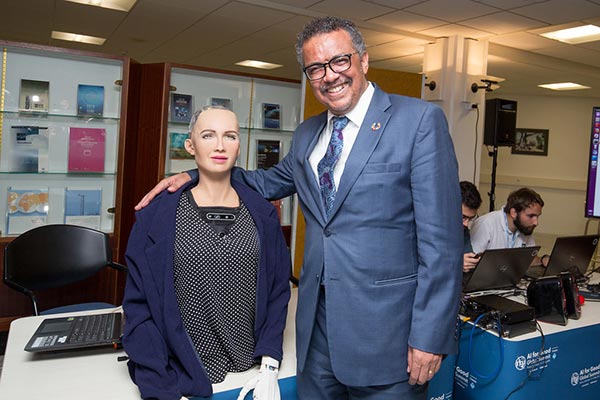Coronavirus isn’t just a physical health crisis – U.N. report says it’s also a mental crisis
05/27/2020 / By Ralph Flores

From the time it was detected in Wuhan, China in December 2019, the coronavirus (COVID-19) has upended daily life around the world. As of press time, over 4.6 million have been infected by COVID-19, and more than 312,000 deaths have been recorded, according to data from Johns Hopkins University.
The devastating effects of COVID-19 – from how it ravages the body to how it has crippled the economy – are the stuff headlines are made of these days. But a recent policy brief from the United Nations reveals that the pandemic has the trappings of a major mental health crisis.
“The COVID-19 virus is not only attacking our physical health; it is also increasing psychological suffering: grief at the loss of loved ones, shock at the loss of jobs, isolation and restrictions on movement, difficult family dynamics, uncertainty and fear for the future,” U.N. Secretary-General Antonio Guterres warned in a video message launching the white paper.
From bad to worse
Mental illness (or mental disorders) refers to any condition that can disrupt a person’s thoughts or behavior. A person with the condition can experience a broad range of problems from abnormal thoughts, emotions, behavior and relationships with others – or even a combination of each.
In 2015, the Centers for Disease Control and Prevention estimated that around 43.4 million adults – that’s one in five Americans – had dealt with mental illness within the previous year. In particular, around 9.8 million adults were diagnosed with serious mental illness, leaving them unable to care for themselves or perform tasks.
The U.N. report found that an increase in depression and anxiety symptoms in many countries. In Ethiopia, for example, a large-scale study revealed a 33 percent increase in symptoms linked to depression during the epidemic.
Meanwhile, a survey done in the U.S. revealed that 45 percent of respondents felt “distressed” at the height of the COVID-19 outbreaks, while a separate survey by Universitat Oberta de Catalunya in Spain found that over half of all adults had recently felt depressed or hopeless about their future.
Data from the Crisis Text Line, a U.S.-based nonprofit organization used by young adults in emotional distress, revealed three waves of concern since the start of the coronavirus.
In early March, keywords ranged from “asthma” and “cough” – an indication of people’s anxiety about catching the virus. It then moved to fears about their loved ones catching the virus, with keywords like “grandma” and “grandpa” spiking. The next wave was focused on financial concerns, evidenced by popular keywords like “quarantine” and “laid off.”
“People are telling us they feel isolated, anxious and depressed because there’s nothing they can do, and they don’t know when this will end,” said Ashely Womble, the center’s communications director, referring to the current wave.
To deal with the stress of the situation, people may turn to addictive substances such as alcohol or drugs. In the U.S., sales of alcoholic beverages went up by 55 percent in the week ending on March 21, according to data from market research firm Nielsen. Online alcohol sales were also up by 243 percent during that period, which experts suspected could be from people stocking up before stay-at-home orders went into effect.
The U.N. study warns that people with increased levels of anxiety and depression can abuse these substances. This behavior can then lead to addiction, wherein a person becomes unable to stop using the substances, even as it causes physical and psychological harm. (Related: Coronavirus harms the brain and nervous system of one in three patients.)
Taking care of your mental health
While the U.N. policy brief outlines community-based solutions to better deal with mental illnesses, Fahmy Hanna of the World Health Organization suggests people who feel anxious or depressed with their current situation to share these emotions – at their own pace.
“People need to remember that this is a marathon, not a sprint — to have rest, to share their emotions and words,” she added.
For those looking to help others who are having a tough time, Hanna says that it’s best not to stigmatize these people, especially when they seek help for their mental health and psychosocial needs.
Learn more about the ongoing Wuhan coronavirus pandemic at Pandemic.news.
Sources include:
UN.org [PDF]
Tagged Under: anguish, beatdepression, Brain, brain function, brain health, China, coronavirus, covid-19, depression, infections, lockdowns, mental health, outbreak, pandemic, Psychology, quarantine, superbugs, virus




















